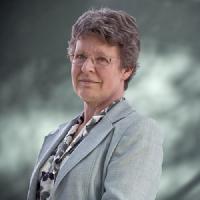Jocelyn Bell Burnell
New Hall, University of Cambridge
Astrophysics
1969
Radio astronomy, pulsars, astrophysics
Astrophysics, Radio Astronomy, Observational Astronomy, High-Energy Astrophysics, Stellar Structure and Evolution, Cosmology, Mathematical Physics
https://en.wikipedia.org/wiki/Jocelyn_Bell_Burnell
K12 , UGLD
Scientist Biography
Biographical information
Jocelyn Bell Burnell is a British astrophysicist best known for her discovery of the first radio pulsars in 1967, a groundbreaking achievement in astronomy. Despite her pivotal role, the Nobel Prize for the discovery was controversially awarded to her male supervisor. Bell Burnell has held numerous academic and leadership positions and is a passionate advocate for diversity in science, using her influence to support underrepresented groups in physics.
Relevant Concepts
Radio Pulsars, PulsarsResearch Areas:
Radio astronomy, pulsars, astrophysicsKey Contributions
Throughout her career, Bell Burnell has been a strong advocate for increasing diversity in the scientific community. She has used her platform to promote the inclusion of women, minorities, and refugees in physics, even donating her Special Breakthrough Prize money to fund scholarships for these underrepresented groups.
While working on her Ph.D. at Cambridge, Bell Burnell identified the first radio pulsars, a type of neutron star that emits regular radio pulses. This discovery revolutionized our understanding of stellar evolution and neutron stars, although the Nobel Prize was awarded to her supervisor instead of her.
